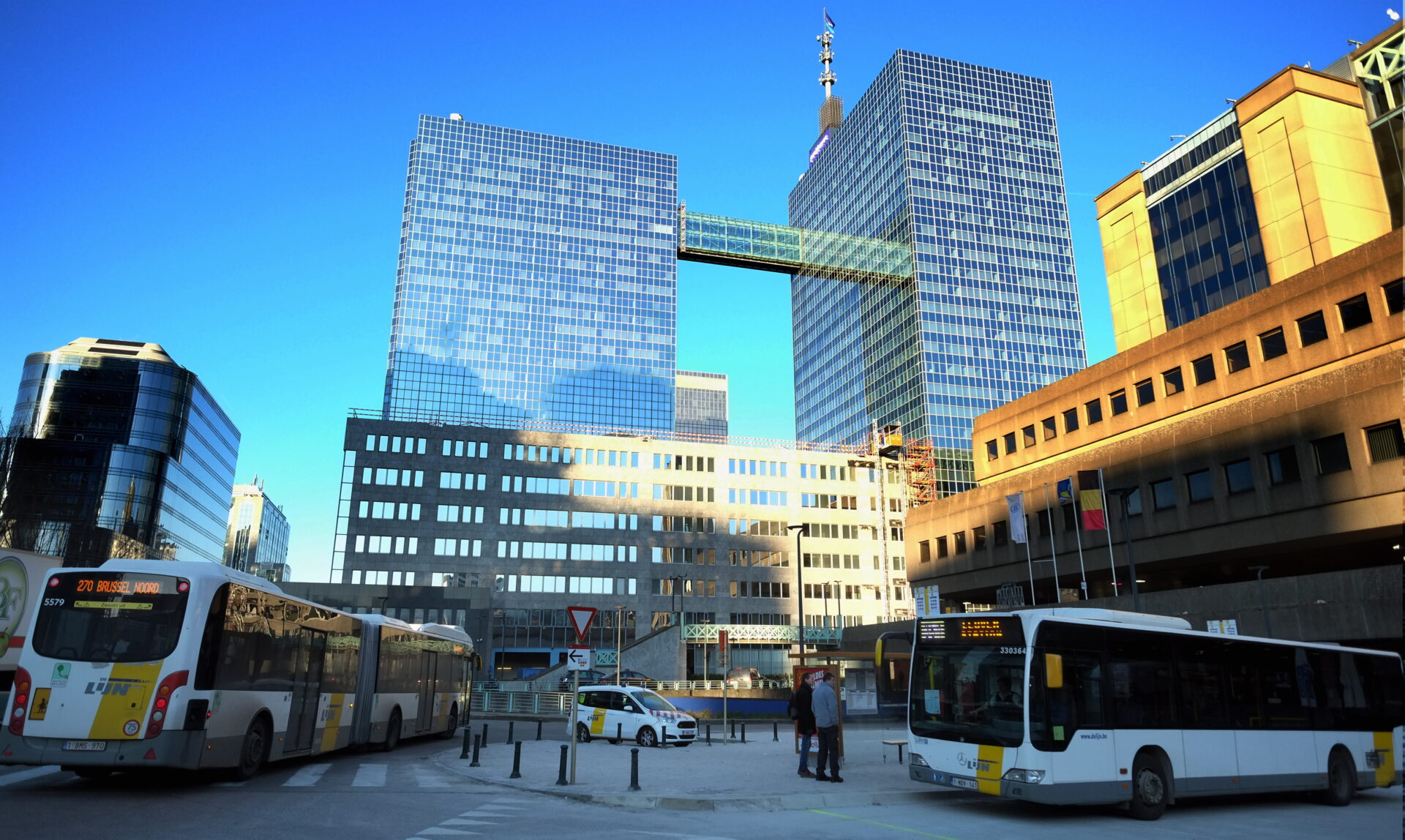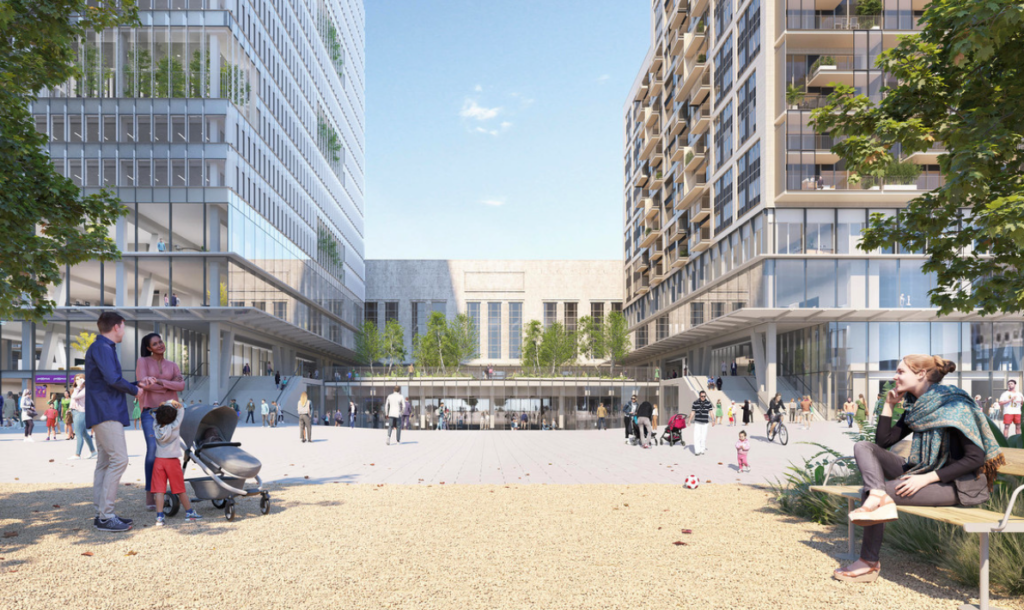A former large-scale complex under demolition near Brussels North station will be replaced by four towers, of which just two will provide housing. While developers argue that this is in line with the region's goal of making the district more vibrant, locals feel their needs are being overlooked.
The demolition of the Communication Centre North (CCN) – built in the 1970s as an extension of the North Station – is currently in underway, which has made the original 1950s North Station building visible again. But real estate developers Atenor and AG Real Estate already have plans to replace the construction with four mixed-purpose buildings. The tallest tower will have 30 floors and measure 57 metres.
Two towers are intended for housing, with plans to build 509 residencies (studios, as well as one-, two- and three-bedroomed houses), enough for around 1,000 people. The other two towers will provide 92,000 square metres (m2) of office space. On the ground floors, 7,900 m2 of retail space will be created along with space for public facilities.
Overall, around 160,000 m2 will be developed above ground level. In addition, the square where the towers will be built, Place Simon Bolivar, will be renovated and a bus terminal will be added. Around 40,000 m2 will be created below ground level, with 682 parking spaces. The west facade of the North Station will be kept visible.
A public enquiry for the development that will replace the construction started on Monday 19 August and will run until 17 September. During this period, people will have a chance to give feedback about the project. It is expected that the plans will receive a considerable number of objections, especially from locals.
Turning back the clock on "Manhattan plan"?
The working-class Northern Quarter was transformed in the late 1970s by the "Manhattan plan", which created a modern business district modelled on US cities dominated by skyscrapers. The district became filled with office buildings as green and common spaces were removed. At least 12,000 people lost their homes.
Last summer, the Capital Region revealed plans to reverse this "Manhattanisation", often referred to pejoratively as "Brusselisation". To this end, it approved the Special Zoning Plan "Westside of North Station", which pushes for mixed-use developments.
The latest project promises "a vibrant mix of housing, offices, retail and public amenities connected by and interacting with qualified unbuilt space" – seemingly in line with the region's objective.

Four more towers may soon be added to the Brussels North skyline. Credit: Belga / Eric Lalmand
However, several associations in Brussels have expressed their reservations since the project was first announced. They remain sceptical about the plans, BRUZZ reported. "The total floor area will be 67% larger, office space will increase, retail space will almost triple, and 50,000 m2 will be earmarked for housing to 'diversify functions' in the district," one organisation, BRAL, wrote several months ago.
The organisations previously objected that the Zoning Plan was adjusted last year so that the project would conform to urban planning regulations.
Raf Pauly, coordinator of BRAL, called the project a missed opportunity. "We are not against towers, nor are we against the plan to make it a mixed neighbourhood. But mixed for whom? It doesn't look as if the houses are meant for locals, where the housing need is very high."
All organisations have argued that the project mainly benefits property developers rather than residents. Before "letting private developers do their thing," they call on the Capital Region to tackle other issues, such as the malfunctioning of the bus terminal and issues with the Metro 3 construction.
Related News
- What does a property's energy rating mean for people buying or selling?
- Brussels starts redevelopment of Place de la Liberté in city centre
These organisations believe that this latest project again highlights failures of major urban developments in the Northern Quarter. They point to a rising number of private developments – such as the ZIN project, Livin project, and the conversion of the Proximus towers.
"The Brussels authorities are a long way from halting the tertiarisation of the district." The civil organisations stress that offices still feature heavily in all the projects. "Time and again we ask that urban projects focus first and foremost on local residents, offering them accessible housing and helping to improve public spaces."

